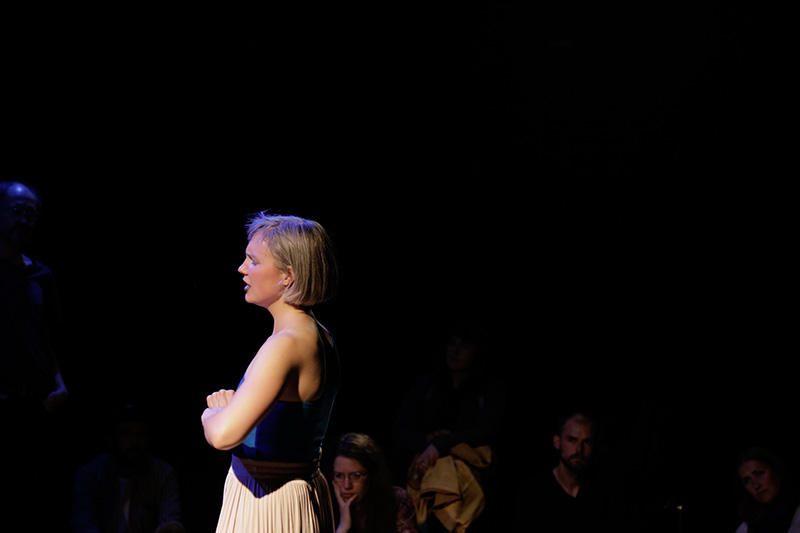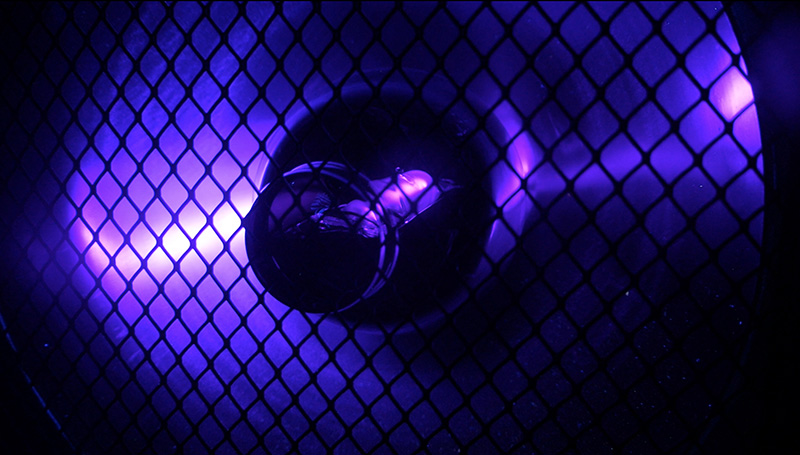NEW COMERS: Cara Tolmie

Cara Tolmie is a Scottish artist based between London and Stockholm. She works from within the intersections of performance, music and moving image. Her works probe the site-specific conditions of performance-making by finding ways to vocalise and place her body that access the political and poetic capabilities of physical, written and musical languages. Collective practice is an intrinsic component of her ongoing work. She collaborates regularly on projects d has contributed to many other collective endeavours in performance-making, pedagogical and expanded research practice. She is also part of the editorial collective for Cesura//Acesso, a journal for music, poetics and experimental politics. For her participation at London’s annual Performance Art Festival “Block Universe” she collaborated for the first time with the artist Kim Coleman and the dancer & choreographer Zoë Poluch for the presentation of “Aphelion Slip”, a new commission exploring the use of light, voice and movement within a theatrical setting.
By Efi Michalarou
Photo: Block Universe Archive
What does means for you this collaboration and how came up? How did you decide to collaborate, what means this collaboration for you?
From my perspective the decision to collaborate was to do with a strong curiosity about one another’s practices and what we could learn from sharing their inner workings in a space together. Kim, Zoë and I bring very different knowledges to the table which has enabled us to try things that would otherwise be impossible. I have already learnt a huge amount from the time we have spent together around ways of developing movement practices, the capabilities and incapabilities of my own body, different textures of response, working with stage lights and exploring the personality of these performing bodies alongside our own flesh bodies. Without this collaboration I would never have come to this.
When and how did you meet up? How easy is for three different artists with personal careers and references to work together for a joint project?
We actually conducted most of our rehearsals in Stockholm. We were able to receive a lot of support from MDT, a really interesting performance space in Stockholm, and used their studio space to develop the work. That as a resource was invaluable. Although its difficult when you don’t all live in the same city, and yes we are all very busy with other projects and personal commitments, those condensed periods together in Stockholm gave us smaller blocks of intensified time together which felt really important. Mostly just to get to know the ins and outs of one another’s thought processes, preferences, physicalities, cooking styles, music tastes, senses of humour. It’s a really important basis from which to produce anything together. I don’t know how anyone can work collaboratively without that tuning-in period.
Do you think that you will continue your collaboration after the Block Universe?
I would like to. What we show at the festival is going to feel like the first attempt at something that I would hope to push further, to see how far we can take this thing within other rooms.
This year’s festival theme address notions of nationhood, inclusivity and identity politics set against a changing socio-political landscape. Looking at networked communities and the power of collective voices. We would like you to explain us, your concept in in response to the issues addressed by Block Universe and how it emerged?
Right now we are still in the belly of the beast as it were. Which makes me reluctant to position ourselves in direct response to a ‘theme’. Perhaps I can however comment on my experience of the production of a collective voice. This collaboration has been a real string of processes and we have had to be highly sensitive to being responsive to what the work actually is rather than what we speculatively will it to be. That shared voice, inhabiting a space delicately suspended between three distinct bodies, wills, lineages of knowledge is a highly fragile entity. Which can be an interesting but also frustrating process. Although, for me, its also so important to learn how to listen to what that emergent collective voice becomes almost of its own volition. Which I suppose is perhaps what makes a “collective voice” powerful, that if it truly is collective then it also has to be continuously sensitive to change, unruly and demanding, characterised by the constant potential of discontinuity.
In your opinion which of the issues addressed by Block Universe, is considered most important, that will affect the future of contemporary art, and society?
I’m afraid I have no idea how to answer that.
First Publication: www.dreamideamachine.com
© Interview – Efi Michalarou

